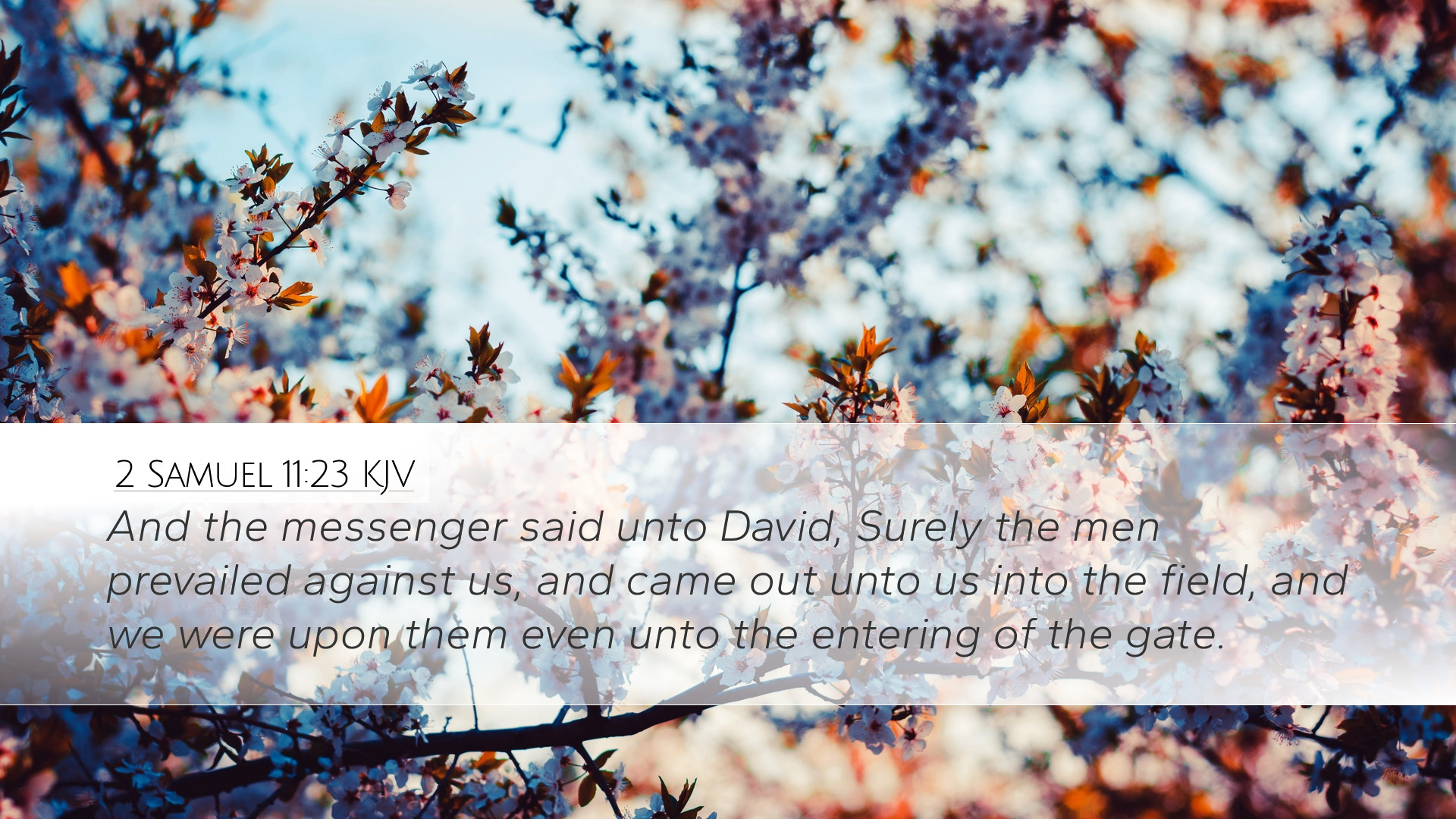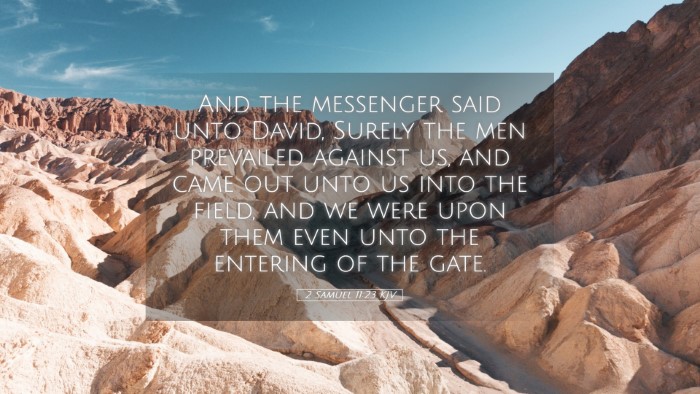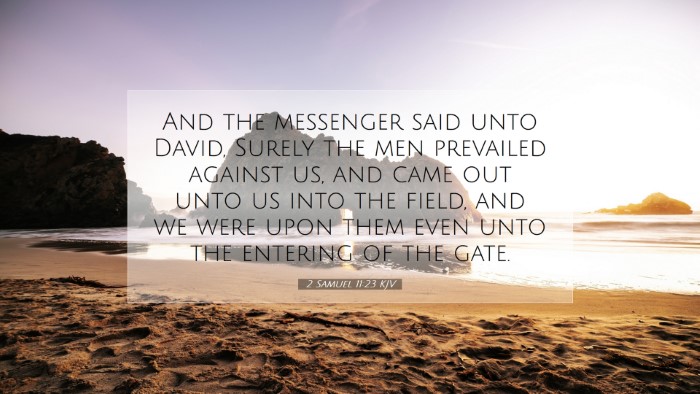Commentary on 2 Samuel 11:23
Verse Context:
In 2 Samuel 11:23, we find ourselves in the midst of a narrative that reveals the complexities of human sin, the consequences of deceit, and the tragic results of moral failure. This verse is part of the account surrounding King David's affair with Bathsheba and the subsequent orchestrated death of her husband, Uriah. The verse records a messenger reporting to David about the battle's state, underscoring the tension and drama that ensues from David’s sin.
Verse Analysis
The verse states: "And the messenger said to David, 'The men prevailed against us and came out unto us in the field, and we were upon them even unto the entering of the gate.'" (2 Samuel 11:23)
1. The Role of the Messenger
The messenger in this verse serves multiple functions:
- Deliverer of News: His role is crucial as he conveys information that has significant implications for David’s reign.
- Reflector of Reality: The messenger’s report highlights the intensity of the battle and the courage of the opposing forces, which stands in stark contrast to David's moral failings.
- Indirect Witness: He unwittingly becomes a witness to the unfolding tragedy, encapsulating the implications of David’s decisions.
2. Themes of Conflict and Morality
Several themes emerge from this text that are vital for understanding the broader narrative of David’s kingship:
- Human Conflict: The conflict described is not merely physical but serves as a metaphor for David's internal struggle with sin. David's decisions have led to dire consequences not only for himself but for those around him.
- Divine Judgment: This incident foreshadows the judgment that will fall upon David due to his sins. The messenger's report is a reminder of God's sovereignty even in the midst of human actions.
- The Burden of Leadership: David's leadership is put to the test, and the outcomes of his choices will reverberate throughout his kingdom.
3. Insights from Public Domain Commentaries
Matthew Henry: In his commentary, Henry notes that the messenger's report reflects the futility of David’s scheme to cover up his sin. He emphasizes the “wise ordering of providence,” which exposes the folly of attempting to hide sin, and he remarks on the intense nature of the battle.
Albert Barnes: Barnes discusses the psychological dimensions of the report. He points out that the messenger’s report is not just about the logistics of the battle but also serves to highlight the moral decay in David's life. The tension of the situation is profound, as David must grapple with the severity of his actions as conveyed indirectly through the messenger’s words.
Adam Clarke: Clarke offers a broad perspective on the consequences of sin as reflected in this verse. He states that this moment in David’s life serves as a dire warning for all leaders. Clarke interprets the report as a call to consider the implications of one's actions, particularly when in a position of authority.
4. Theological Implications
The theological ramifications of this account extend into several areas:
- Sin and Its Consequences: The message serves as a stark reminder that sin leads to death and destruction, not just for the individual but also for the innocent. David’s transgressions impact more than just his personal life.
- God’s Sovereignty: Even in human failure, God’s hand remains firmly on the course of events. Through the messenger, God achieves His purposes, even when it seems contrary to human understanding.
- Call to Repentance: This account challenges leaders and followers alike to reflect on their own lives, prompting a need for personal and communal repentance in the face of moral failures.
5. Conclusion
The message delivered by the messenger in 2 Samuel 11:23 embodies critical themes that resonate within the broader scriptural narrative. It serves not only as a record of historical events but also as a cautionary tale that echoes through time. For pastors, theologians, and scholars, the complexities of this verse invite deep reflection on the nature of leadership, the consequences of sin, and the eternal truth of God's sovereign rule amid human weakness.


